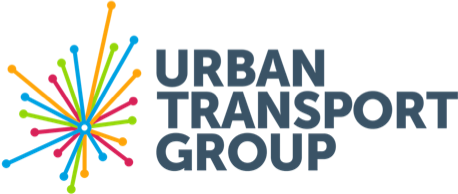Consultation response
Policy
Our latest reports, briefings and consultation responses are listed below. Use the search or filter functions to discover specific policy documents.
You can also see our full list of policy topics via the link below.
Consultation response
Regulated access charges
Report
Dream ticket? The challenges and opportunities of delivering smart ticketing in the city regions
Consultation response
Review of Net Zero: call for evidence
Report
Future Streets: Challenges and opportunities
Briefing
Social inclusion
Briefing
Briefing on Light Rail
This briefing on Light Rail Systems answers some of the most frequently asked questions about this mode of transport, and presents the benefits that Light Rail can bring.
This updated briefing on Light Rail Systems answers some of the most frequently asked questions about this mode of transport, and presents the benefits that Light Rail can bring.
Briefing
Key urban transport challenges and opportunities for the new Government
The short briefing set out the priorities that the new Prime Minister should address in order to keep the UK’s urban areas moving.
Briefing
Bus Policy
This short read briefing looks at why buses matter and how bus policy works. It explains the significant challenges facing the sector, how city regions are backing the bus and what reforms of national bus policy could help the bus fulfil its potential.
Consultation response
Self-driving vehicles
Briefing
UK Transport Governance - an introduction
Read our briefing to find out more about how transport is governed in the UK.
Consultation response
Response to the consultation on legislation to implement rail transformation from the Urban Transport Group
Report
The Good Life: The role of transport in shaping a new and sustainable era for suburbs
Report
Decarbonising urban vehicles - Challenges and opportunities for city region public authorities
Briefing
Briefing on the Transport Bill
A briefing on the Transport Bill announced as part of the Queen's Speech in May 2022, including what we know so far and what the Bill should contain to transform urban transport for the better.
Report
Transport authorities for metropolitan areas: The benefits and options in times of change
Consultation response
Allowing non-physical guided transport modes to be authorised by a Transport and Works Act order
Consultation response
Transport labour market and skills - call for ideas
Consultation response
Mobility as a Service Code of Practice
Report
Equitable Future Mobility: Ensuring a just transition to net zero transport
Consultation response
Public Transport in towns and cities
Consultation response
National Bus Strategy - one year on
Report
The future of e-scooters - What powers do cities need and what standards should be set?
This report sets out first principles to consider in any regulatory reforms around micromobility, before moving on to detailed recommendations on, first, powers to control the micromobility rental market and, second, on construction and use standards specifically for e-scooters, given concerns around the private e-scooter market.
Report
Continuing COVID Funding Support for Urban Public Transport
Briefing
The threat to public transport in the city regions
Consultation response
Whole Industry Strategic Plan - Call for Evidence Response Form
Report
Strategic analysis of current bus safety issues
Report
Delivering a greener future - Urban freight and the decarbonisation of the city regions
Report
Making rail reform work for people and places in the city regions
Briefing
The threat to public transport in the city regions
Urban public transport is in danger of entering a new period of retrenchment and decline, following on from years of decline in bus services outside London and the body blow of Covid-19 pandemic. To avoid this, we set out what needs to happen.

